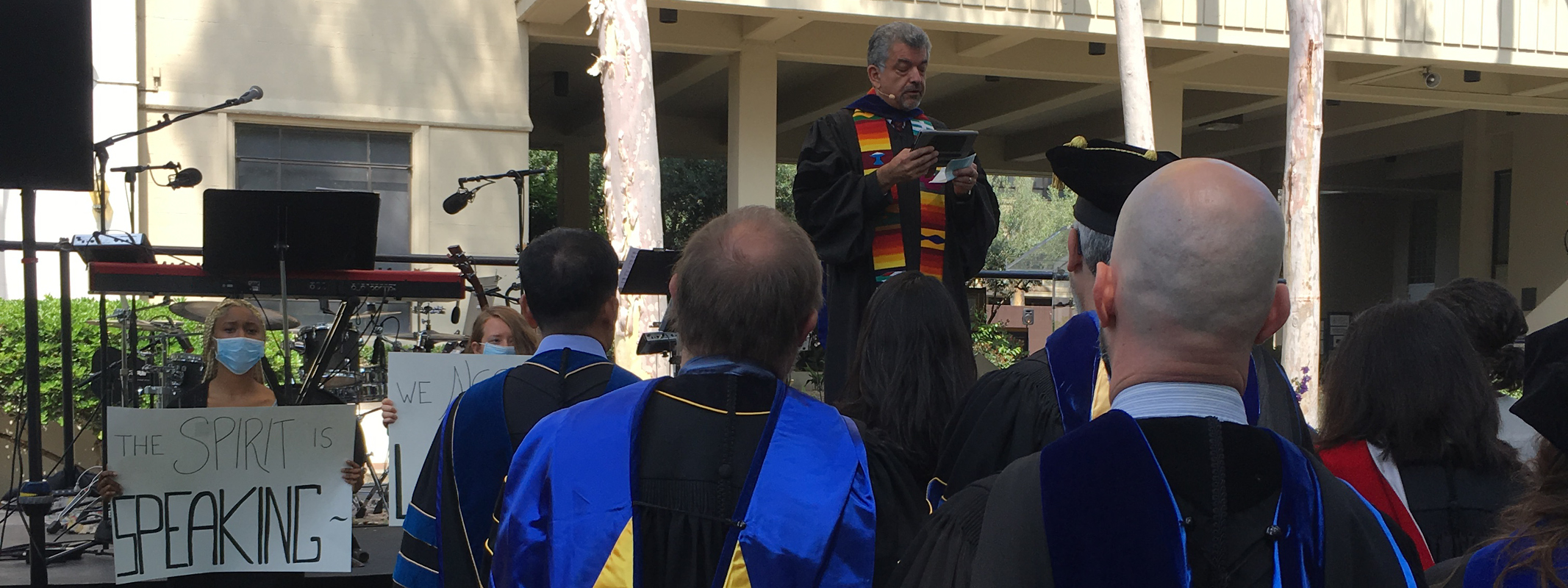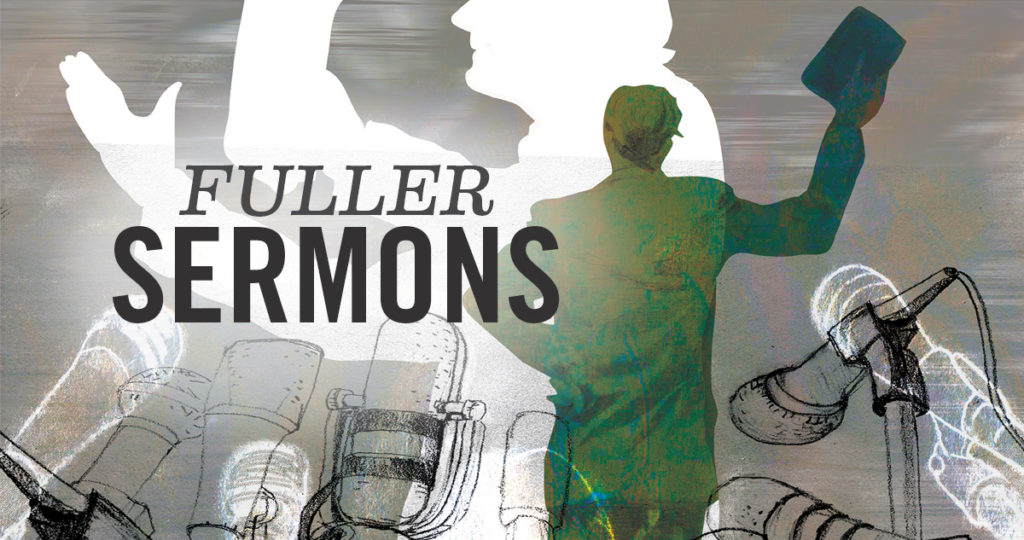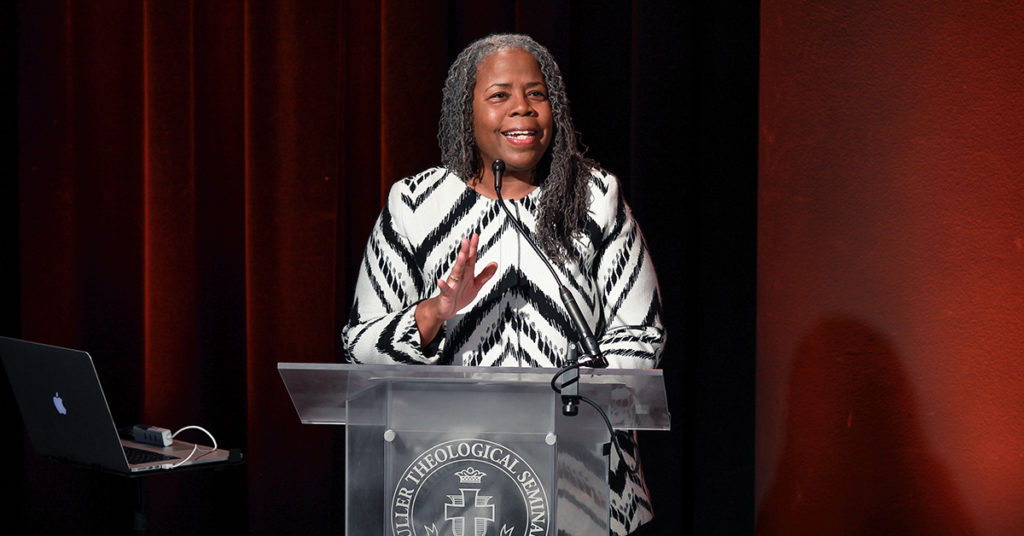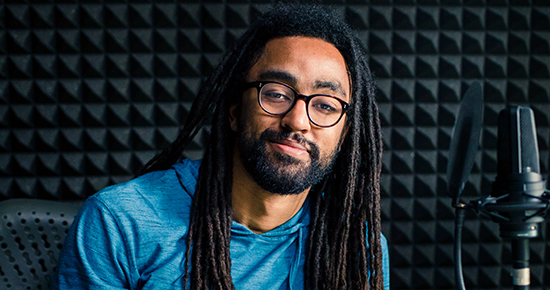
Photo courtesy of Andrea Gacs
What We Have Begun Is Yet Unfinished
+ Letter Two: the second in a series of responses prompted by African American students’ petitions for change at Fuller and the opportunity it presents to reset some of our highest goals as an institution. Here President Labberton addresses his reactions to the protest at Baccalaureate in response to questions from other graduates and their guests. - 6/22/18
Dear Fuller Community,
Over the last few weeks, I’ve had many people ask about my reactions to the 2018 Baccalaureate service. Though much of this will not be news to the Black students with whom I have been in communication for some time, I have been asked by others in the community to reflect more thoroughly on the day than I did immediately afterward—something I am able to do with the distance of the few weeks that have passed.
As I came to Baccalaureate this year, I felt a wide range of emotions. The most obvious was the joy and pleasure of seeing another set of Fuller graduates, surrounded by family and friends, begin the special days of celebration leading up to Commencement. The familiar faces of many wonderful students that I had come to know personally and gratefully alongside the less familiar faces of their own “cloud of witnesses,” family and friends, who were there to revel in the journey and achievement of their beloved graduate.
Another set of emotions were marked by gratitude and nostalgia for the lovely setting on Arol Burns Mall where the Baccalaureate was being held, long the heart of our campus and a central gathering point for so many poignant moments in Fuller’s history. As I came in with the faculty procession, encouraged by an earlier musical rehearsal that gave us a foretaste of the beauty to come, I was so grateful for the many aspects of Fuller’s faithful life and mission: though Fuller is never sufficient, never complete, never done, it is held and used by the God whose faithfulness has not yet finished what it has begun.
Woven in and through these emotions was heartache that lingered from months, and years, of conversations with African American students many of whom have felt for themselves, and for others like them, that Fuller leaves them unseen, unheard, unacknowledged, unvalued. Senior administrators and faculty have had many chances to hear students state their pain, their needs, and their demands. While progress has been made over time, many of our African American students still were frustrated and angry at too little, too slow. Meanwhile, they have watched African American faculty leave Fuller, each closing a significant outpost of hope with their departure. By Monday of Commencement Week, after a long and passionate meeting with African American students and a collection of administrators and faculty, student patience had run out and determination for change ran high.
So it was on Thursday when I was sitting on Arol Burns Mall, in the glory of a beautiful Pasadena morning, filled by all of the emotions I have mentioned—that I also felt grave. There were three reasons: a) our Black students’ and faculty exasperation with the lack of African American narratives and voices represented in every aspect of institutional life; b) a warning that this Baccalaureate might be the occasion for some kind of action by African American students and others; and c) the awareness that for many graduates, families, and friends, a protest would be a shocking and disorienting intrusion on a day of joy.
The first protesters stood silently with surgical masks, then more came forward with both masks and placards, and faced the congregation as the sermon progressed. Our preacher, Dr. Juan Martínez, incorporated an explanation of the protest and interpreted its symbols and actions into his sermon, asking those who wished to express solidarity to stand. As I stood and looked at the faces of the protestors I could see, all of whom I knew, I was moved by their courage. For them to step up into that moment as they did was evidence of how profoundly they felt the necessity to speak out for change. Among them were graduates, too, who held the day as something sacred.
My feelings from then until now have largely orbited around a longing in me for Fuller to be able to truly hear and receive the witness of African American students, friends, allies, and faculty—and for that witness to land with institution-changing impact. African American narratives, thought, scholarship, leadership, formation, and influence must become a deep, significant, and permanent part of Fuller because we want to be a place where African Americans can thrive. But we also need these gifts from African Americans for Fuller to thrive as we internalize the changes that face us and that Christ calls upon us not just to claim but to embody for all members of Fuller’s community.
I left Baccalaureate aware of these protestors, but also of the other graduates, visiting parents, and grandparents. Worship that is truly Christian must reflect the reality of God’s life and of our lives: this will sometimes mean the reordering of power in our lives and the world. That will often invite us into uncomfortable places. Every year, Baccalaureate issues that invitation because it is worship. I grant the pain and anger that others felt as a result of the pain and anger in the African American student protests, while I also receive the protest as an urging to be the community to which we aspire—one that reflects the God we name. In many ways, commencement week is a mix of emotions for all of Fuller—a time to recognize what has been accomplished while knowing that what we have begun remains unfinished.
In Christ,
Mark Labberton
Past Letters
FAQ
Related Material
Seeking More Inclusive Communications
New MA in Theology graduate Aaron Dorsey has been appointed to the position of Communications Inclusion Liaison
Join the Conversation
Please share your thoughts and questions with us here.



